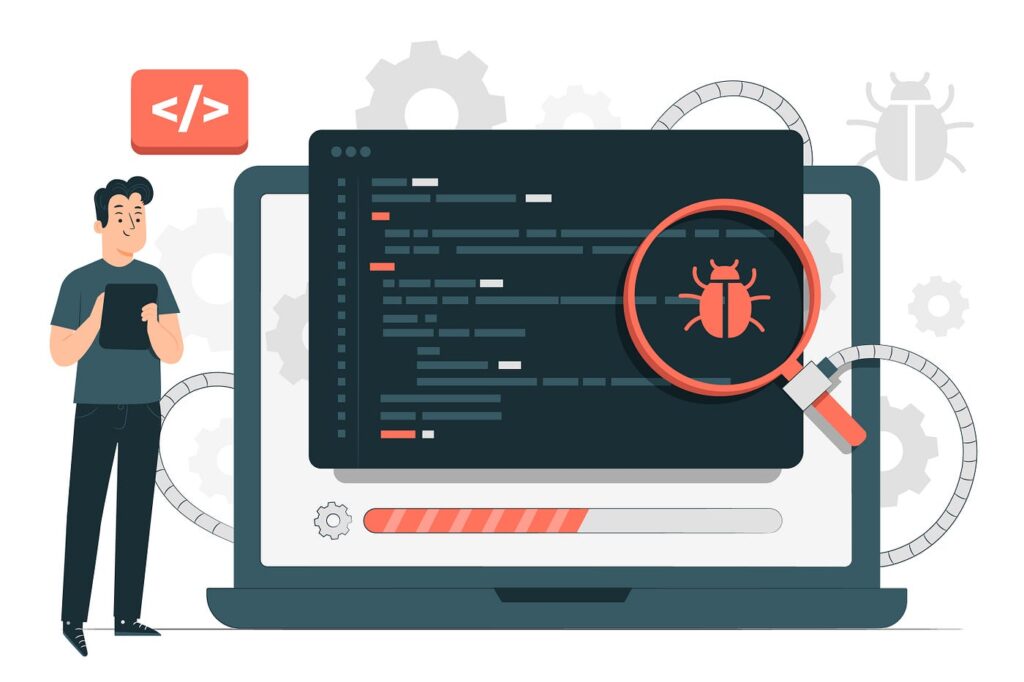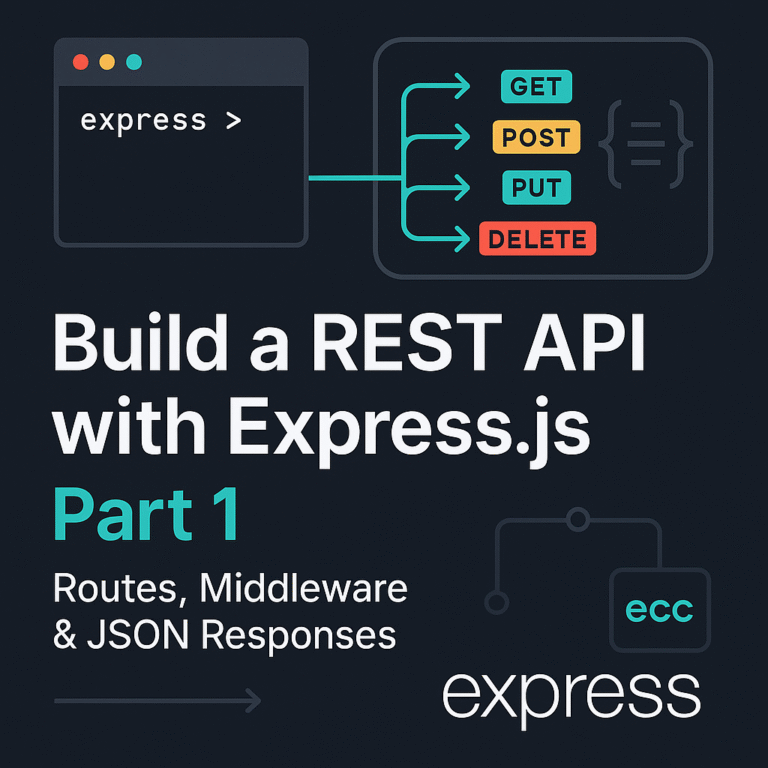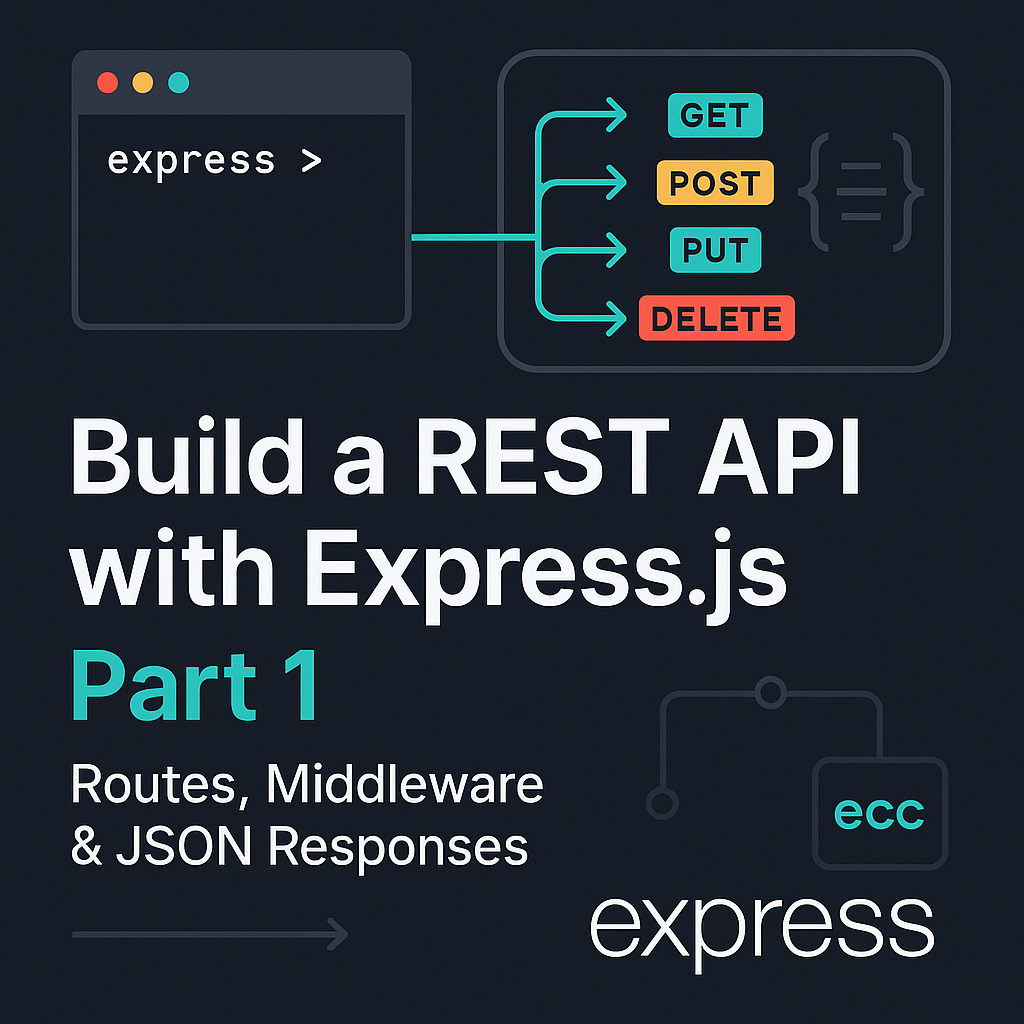When I first started as a web developer, I had no idea how much I didn’t know. Back then, I thought writing code that ‘just worked’ was enough—until I encountered my first legacy system, a tangled mess of unreadable logic and zero documentation. That moment humbled me fast.
Over the years, through trial and error (and lots of Googling), I’ve learned lessons that transformed how I approach coding, collaboration, and problem-solving. These aren’t just technical tips; they’re mindset shifts that saved me from burnout, team conflicts, and the horror of revisiting my own old code.
Along the way, I’ve learned some valuable lessons—lessons that have shaped me both technically and professionally. In this post, I’ll share those lessons with you.
1. The Importance of Writing Clean, Maintainable Code

Clean code is easier to read, debug, and maintain
One of the first things I learned is that clean code is not just for others—it’s for your future self. Early on, I inherited a legacy system with poorly documented, spaghetti-like code. Debugging it was a nightmare, and I vowed never to put someone else (or myself) in that position.
Why Clean Code Matters:
Clean code isn’t about perfection—it’s about respect. Respect for your teammates, your future self, and anyone else who might touch your code. When you write clean code, you’re not just solving a problem today; you’re preventing a debugging nightmare six months from now.
A Personal Story:
Nothing teaches you the value of clean code like being trapped in a maze of your own making. I learned this the hard way when I inherited a legacy system so tangled, even its original developer couldn’t explain it.
I spent hours debugging a feature that wasn’t working as expected. The issue? A poorly named variable that was being reused in multiple places. After refactoring the code and adding comments, I realized how much time I could have saved if the original developer had followed best practices.
Tips for Writing Clean Code:
- Follow coding standards and conventions.
- Name things like you’re explaining them to a new developer.
calculateInvoiceTotal()beatsdoTheThing(). - Write comments for “why,” not “what.” The code should explain itself; your comments should explain the reasoning.
- Refactor early, refactor often. Like doing dishes—wait too long, and the mess becomes unbearable.
2. Collaboration is Key

Web development is rarely a solo endeavor.
Whether you’re working with designers, product managers, or other developers, collaboration is essential. I used to think coding was a solo sport—until a miscommunication cost us two weeks of work. The design team had mocked up a feature, I built it exactly as specified, and then… we realized we’d completely misunderstood the user’s needs. That painful rewrite taught me a hard lesson: great software isn’t built by individuals; it’s built by teams.
The Role of Teamwork:
Good collaboration isn’t just about avoiding disasters—it’s about building something better than any one person could alone. A designer spots UX flaws you’d miss. A backend dev warns about scaling pitfalls. Even junior team members ask questions that reveal hidden assumptions.
Tips for Effective Collaboration:
- Treat Git commits like conversation starters. Write messages that explain why you made a change, not just what you changed.
- Feedback isn’t a personal attack. The best teams rip ideas apart—but respect the people behind them.
- Over-communicate early, streamline later. A 5-minute standup can save a 5-hour rework.
- Document decisions like you’re leaving clues for a detective. Assume everyone will forget the discussion in a week.
3. Debugging is a Skill (and an Art)

Debugging requires patience, curiosity, and a systematic approach.
I once spent 1 hour chasing a bug that turned out to be a missing semicolon. One. Hour. At first, I refused to believe something so trivial could break everything—until I finally swallowed my pride, checked the basics, and there it was: a single character, laughing at me from line 42. That humbling moment taught me that debugging isn’t just about fixing errors; it’s about embracing the process of elimination, no matter how obvious the solution seems.
The Debugging Mindset:
Debugging is like being a detective in a crime novel where you’re also the prime suspect. Was it your recent code change? A hidden race condition? Or just the universe conspiring against you? The key is to methodically eliminate possibilities—starting with the simplest explanation—before diving into complex theories.
Debugging Like a Detective: Practical Tips
- Start with the stupid stuff first. Check typos, uncommitted files, and whether the server is actually running. (You’d be surprised how often this works.)
- Rubber duck it out. Explain the problem aloud—even to an inanimate object. Half the time, the solution hits you mid-sentence.
- Isolate the crime scene. Use
console.logor breakpoints to narrow down where things go wrong. If the bug only happens on Tuesdays, ask what’s special about Tuesdays. - Prevent future crimes. Write a unit test to catch regressions. If it hurt once, make sure it never happens again.
4. Performance Matters

Optimizing performance keeps users engaged and coming back.
I’ll never forget the day our analytics showed a 60% drop-off rate on a critical page. Turns out, users were abandoning ship because the page took 8 seconds to load—longer than it takes to brew coffee. After a brutal week of query optimizations and asset trimming, we got it down to 2 seconds. Almost overnight, conversions jumped by 30%. That’s when it hit me: performance isn’t just a technical metric; it’s your user’s patience measured in milliseconds.
Why Performance Optimization is Crucial:
Performance impacts user experience, SEO, and even revenue. A fast, responsive website keeps users engaged and coming back.
Performance Wins: Where to Focus First
- Database Queries: If your queries are slower than a sloth on vacation, add indexes, cache results, or denormalize where it hurts. (Example: Replacing a N+1 query with a JOIN cut our API response time by 300ms.)
- Asset Diet: Compress images, bundle JS/CSS, and ditch unused dependencies. A single unoptimized image can bloat your page like a Thanksgiving meal.
- Lazy Load Everything Below the Fold: Why load a hero image and a footer map when the user hasn’t even scrolled yet?
- Monitor Relentlessly: Tools like Lighthouse or New Relic are your performance X-ray glasses—use them.
5. Never Stop Learning

Staying updated ensures you remain competitive and effective.
Early in my career, I assumed that once I mastered the basics, I’d be set. Then I encountered my first real-world project—a sprawling codebase using tools I’d never seen before. Suddenly, my “expertise” felt like a drop in the ocean. That humbling moment taught me: in tech, the only constant is change.
A 2023 Stack Overflow survey found that 48% of developers learn a new tool or technology every 6 months. Whether it’s a new language feature, a paradigm shift (like microservices), or an entirely different stack, stagnation isn’t an option. Learning isn’t just about staying relevant—it’s about survival.
The hardest lesson? It’s okay to not know everything. No one does. What matters is the willingness to figure it out.
How I Keep Up (Without Losing My Mind):
- Learn by doing. Tutorials are great, but nothing sticks until I build something—even if it’s small or silly. (Example: I once built a weather app just to practice API calls.)
- Embrace the “beginner’s mindset.” I ask “dumb” questions early. It’s less painful than pretending to know and failing later.
- Focus on fundamentals. Trends come and go, but concepts like clean architecture, efficient algorithms, and secure design last forever.
- Curate my inputs. I follow a few high-quality newsletters (like TLDR) instead of drowning in endless blogs.*
6. Soft Skills are Just as Important as Technical Skills

Soft skills enable you to work effectively with others.
While technical skills are essential, soft skills like communication, time management, and adaptability are equally important. I once worked on a project where tight deadlines and changing requirements required me to adapt quickly and communicate effectively with the team.
The Role of Soft Skills:
“A Harvard study found that 85% of career success comes from soft skills. Why? Because no one works in a vacuum. Miscommunication breeds bugs. Poor time management kills productivity. And rigidity turns small setbacks into disasters. The best code in the world fails if your team can’t understand your decisions—or worse, dreads working with you.”
Soft Skills That Saved My Sanity:
- Speak in ‘Why’ First. Instead of “We need to refactor this”, try “This code breaks when X happens—refactoring could save us 20 hours of debugging next quarter.” Framing wins buy-in.
- Time-block like a chef. Schedule deep work (coding) for mornings, meetings for afternoons, and always buffer time for the unexpected. (Pro tip: Assume tasks take 1.5x longer than you think.)
- Treat feedback like unit tests. It’s not personal—it’s stress-testing your blind spots. Thank critics; they’re unpaid mentors.
- Adapt or self-destruct. When requirements change, ask: “What’s the smallest win we can deliver now?” Perfect is the enemy of shipped.
7. Being the Newbie: Embrace Your Fresh Perspective

Your fresh perspective can inspire others and bring new energy to the team.
On my first day as the team’s most junior developer, I overheard a senior engineer say, ‘We’ll have to dumb things down for the newbie.’ My stomach dropped. With a background in robotics—not web dev—I felt like an impostor. But within weeks, I discovered something unexpected: my ‘outsider’ perspective became my superpower.
How My Background Helped:
Robotics forced me to think in systems—how one broken sensor could cascade into total failure. That mindset helped me spot hidden dependencies in our web app that others overlooked. And debugging a physical robot? It taught me patience no tutorial could match.
A Story About Contributing as the Newest Team Member:
During a heated debate about a sluggish dashboard, the team debated caching vs. query optimizations—until I asked, ‘Could the issue be how we’re joining these tables?’ Silence. Then the lead dev’s eyes widened. My robotics experience with sensor data streams made me hypersensitive to inefficient data flows. That ‘naive’ question uncovered a flawed JOIN operation nobody had considered. Later, my manager joked, ‘Never underestimate the newbie—they see the forest while we’re stuck in the trees.’
The Importance of Confidence and Self-Belief:
“Your inexperience is temporary. Your curiosity is permanent. The best teams don’t just tolerate new perspectives—they crave them. So speak up, ask ‘dumb’ questions, and trust that your unique lens is worth more than you think.”
Conclusion
When I first started, I measured my skills by how many languages I knew. Today, I measure them by how many problems I can solve—and how many teammates I can empower along the way. That shift didn’t happen overnight. It came from late-night debugging marathons, humbling feedback sessions, and moments where my ‘newbie’ perspective unexpectedly saved the day.
These hard-won lessons rewired how I work:
- Your weakest skill today becomes your superpower tomorrow.“
- Code is communication. Write it for humans first, computers second.
- The best debug tool? A teammate’s fresh eyes.
- Performance isn’t optional—it’s respect for your users’ time.
To anyone starting their journey in web development (or any tech field), remember: growth happens outside your comfort zone. Stay curious, stay humble, and never stop learning. The best developers aren’t those who know everything—they’re the ones who keep pushing forward, one line of code at a time.
What’s the one lesson that changed everything for you? Was it a brutal bug, a mentor’s advice, or finally grasping a concept that once seemed impossible? Drop it below—let’s learn from each other’s stumbles and wins. 🚀”
Here’s to the next years—and all the lessons yet to come.🤘🚀









